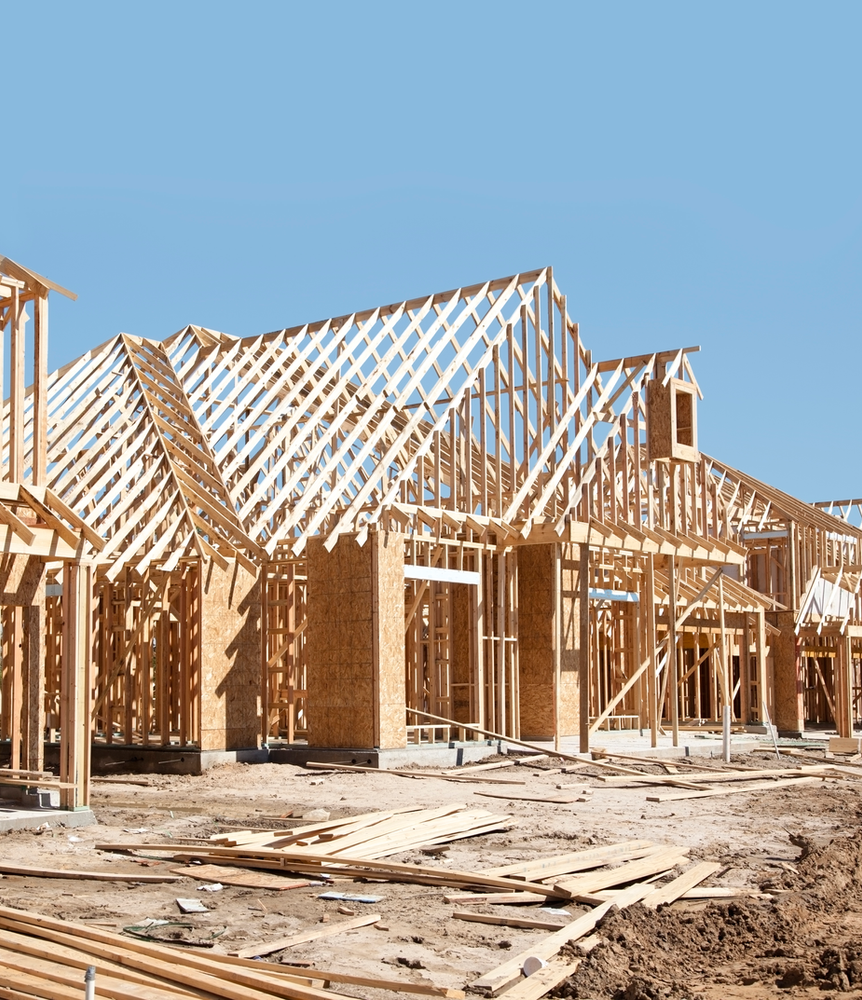Many people believe that since a house is being built from scratch, there is no need for a home inspection. However, home inspections can provide significant insights into the home’s construction. A home inspection evaluates your home’s systems, structure, and key features. Here are some of the reasons you should inspect your newly constructed home.
New Constructions May Have Problems
Builders involve different subcontractors and their employees when building a home. These professionals work on various systems of the house at the same time. Therefore, it may not be possible for the foreman or builder to check all the construction phases.
Some problems found in new constructions include missing siding, organic growth on wood framing, and missing insulation. Additionally, an inspector may find that the ducts are unattached to the air conditioning unit, and the roof shingles are raised, allowing water to penetrate through them.
Code Inspections Are Not Thorough
Homeowners often disregard an inspection of a newly built home because they think code inspections are enough. When a new home is being constructed, the city sends different inspectors to ensure the building is up to code. Each code inspector focuses on a specific part of the building. For example, the inspector checking the electrical system will not look at the framing, plumbing, or other parts of the home.
Furthermore, code inspections do not check fixtures and flooring. On the other hand, a home inspection checks all these aspects and more.
Inspections Reveal Pest and Insect Infestations
A recent report established that insects cost the US more than $4 billion annually. The likelihood of a pest or insect infestation will vary depending on where your home is based.
One way pests could damage your new home is by burrowing through the wood. Termites, beetles, and ants are some of the pests that feed on wooden parts of your home. These pests damage the structural integrity of your newly constructed home, making it ineffective and exposing it to cracking and collapsing. Damage to your home’s foundation can result in expensive repairs.
Another way pests could ruin your newly built home is by causing electrical damage. Rodents like gnawing on soft items like electrical wires. These pests will also feed on your home’s fabric, furniture, wood, and hard plastics.
To avoid these future problems, you should schedule a pest control professional to determine the potential for pest infestations in your home. Your inspector will recommend measures you can take to prevent pests from invading your home.
Pre-Dry Wall Inspections
An important reason your new home should be inspected is to see through the walls to check the condition of electrical systems, plumbing, and AC ducts. This inspection should be conducted before the drywall is installed if the builder allows it. The pre-drywall inspection also checks the structural features of your home.
Many new homeowners believe that inspectors can see through walls with equipment. However, an inspector can only see inside the walls before drywall installation. In many cases, this inspection may determine whether the wiring is not exposed, it is safely installed, and the home is properly insulated.
Warranty Inspection
Many builders guarantee specific repairs or adjustments during the first year of occupying your new home. Therefore, when the warranty expires, the builder is not responsible for any damages or flaws in your new home. Your newly built home must be inspected before the warranty period lapses.
Some of the defects that may be discovered during a warranty inspection include missing grout, missing insulation, loose toilets, and leaking plumbing. This inspection is the easiest way to identify flaws after you have occupied your new home.
Wrapping It Up
Ideally, you should have your new home inspected three times. First, an inspection before closing off the house walls enables the inspector to identify potential problems lurking behind the walls, like faulty plumbing and poorly installed electricity. The second inspection should be conducted when the home is complete.
This inspection allows for negotiations with the contractor to address any features that do not meet your specific standards. Finally, when you move into your new home, it should be inspected before the warranty for construction expires. Whether you plan on occupying or selling your new home for your safety and to avoid future expenses, make sure a professional inspector thoroughly vets it. When you are ready, give us a call! 951.351.1855




